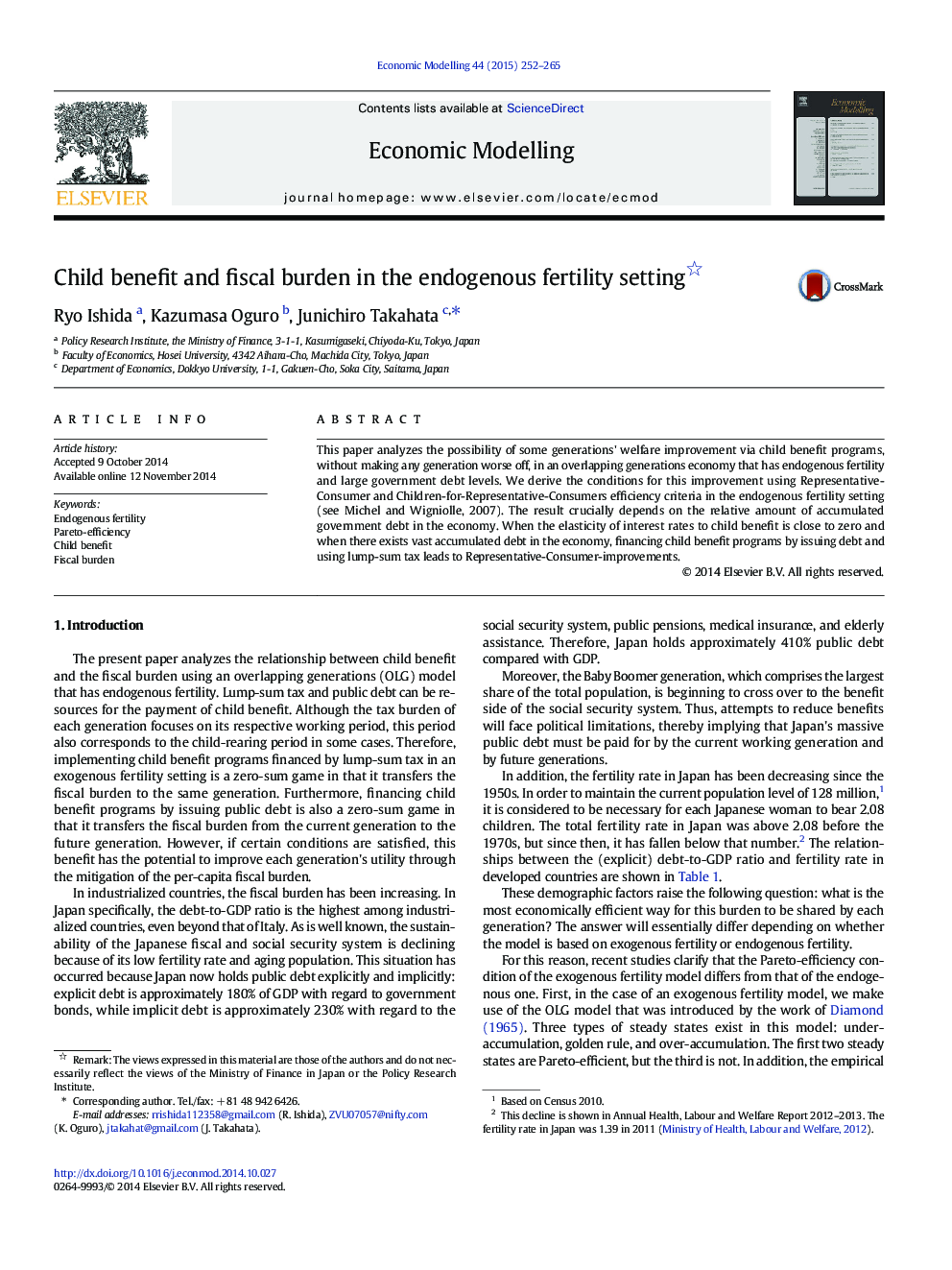| Article ID | Journal | Published Year | Pages | File Type |
|---|---|---|---|---|
| 5054079 | Economic Modelling | 2015 | 14 Pages |
Abstract
This paper analyzes the possibility of some generations' welfare improvement via child benefit programs, without making any generation worse off, in an overlapping generations economy that has endogenous fertility and large government debt levels. We derive the conditions for this improvement using Representative-Consumer and Children-for-Representative-Consumers efficiency criteria in the endogenous fertility setting (see Michel and Wigniolle, 2007). The result crucially depends on the relative amount of accumulated government debt in the economy. When the elasticity of interest rates to child benefit is close to zero and when there exists vast accumulated debt in the economy, financing child benefit programs by issuing debt and using lump-sum tax leads to Representative-Consumer-improvements.
Related Topics
Social Sciences and Humanities
Economics, Econometrics and Finance
Economics and Econometrics
Authors
Ryo Ishida, Kazumasa Oguro, Junichiro Takahata,
